Click here to download a detailed description of NCAPPS Learning Collaboratives
NCAPPS Learning Collaboratives bring together “teams” from States, Territories, and Tribal human services agencies to engage in peer-to-peer learning. They provide a framework for teams to learn about, test, and implement specific systems change efforts focused on a global aim. They are guided by best practices and structured to promote and accelerate local efforts.
Learning Collaboratives will be operating for a 12 to 24 month duration, depending on the topic and framework. During that time, teams will have 3 days of dedicated video conference “Learning Sessions” to learn the framework, form implementation teams, share information, and chart progress. They begin with a global aim and a framework developed by a panel of experts. Teams learn the framework and then develop their own local aim based on the global aim. They select specific strategies from the framework to implement and test, along with measures that will help them to know if what they’re doing is leading to the desired results. Between the Learning Sessions, the teams conduct ‘tests’ using Plan-Do-Study-Act (PDSA) cycles. Teams will report data on their progress back to NCAPPS to support ongoing learning and understanding. In later Learning Sessions, teams will identify strategies for longer-term sustainability of systems change efforts.
For example, with the overarching goal of increasing self-direction, teams may apply one or more strategies involving participant outreach and education, support coordinator education, peer supporter partnerships, or the development of the network of support providers. When testing these strategies, the teams will measure against identified benchmarks (e.g., self-direction enrollment).
For topics for which practices are still in development and for which there is no clearly defined ‘best practice’, the Collaboratives encourage teams to identify and test various approaches locally. For example, for enhancing access to person-centered planning and supports for people with brain injury, teams will participate in developing ideas through local ‘tests’. Using PDSA cycles, they’ll test opportunities for developing community and eligibility-based supports, and for increasing participant engagement in planning processes.
Interested in joining a Learning Collaborative? Please send us an email to receive updates, including invitations to participate as they are available.
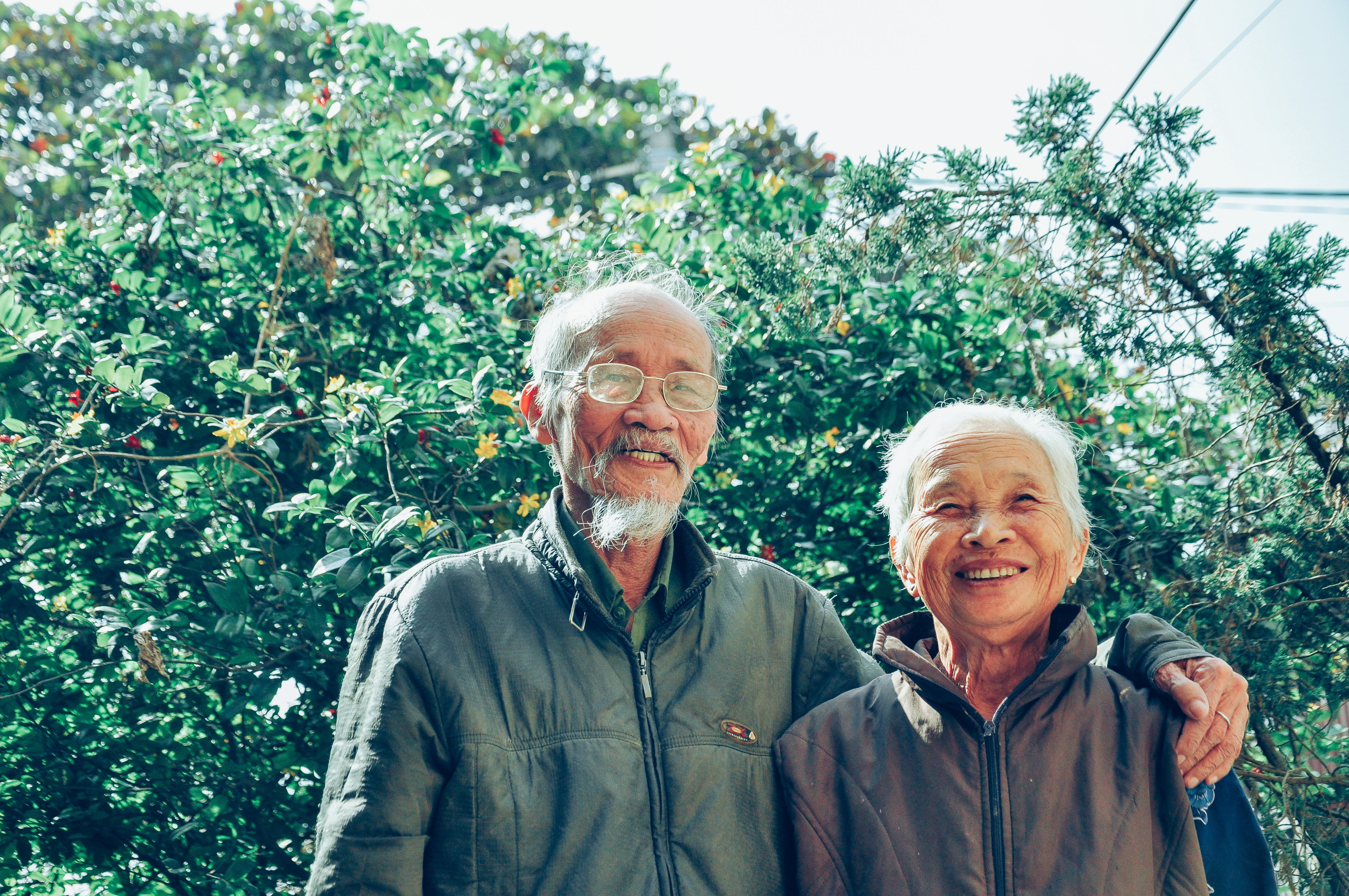
People receiving Home and Community-Based Services (HCBS), including people with disabilities and older adults, have the right to dignity and respect and the freedom from coercion and restraint among other basic human rights. However, at times, to ensure the health and safety of the person and others, a person’s rights may need to be modified in HCBS settings. In these instances, as outlined by the HCBS Final Rule, the modification of the person’s rights must be supported by a specific assessed need and justified and documented in the individual’s person-centered plan. States may also refer to these “modifications” as “restrictions” or “rights restrictions.”
In response to states’ continued need for assistance with modifications, NCAPPS will bring together state-led teams of human service agency representatives, service providers, case managers, advocates, and other community partners across the country to engage in peer-to-peer learning around modifications. Teams will pursue a common aim to improve processes for documenting and implementing modifications in compliance with the person-centered planning requirements of the HCBS Final Rule within provider-owned and controlled settings while promoting individual rights and preventing coercion. Teams will explore how to clarify roles and responsibilities among service providers and case managers, balance risk with ensuring the welfare of the person, document informed consent, minimize the intensity and duration of modifications, utilize person-centered planning tools, and ensure the appropriate documentation and oversight of modifications.
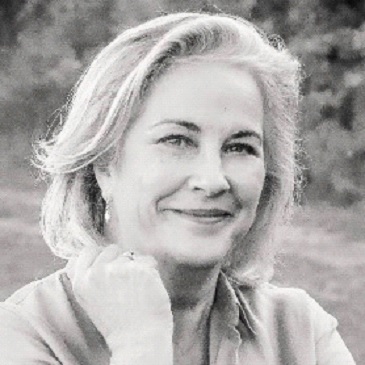
Mary Lou Bourne is a long-term service and supports system consultant and has dedicated her career to transforming service systems by designing and implementing high-quality, person-centered services for people with intellectual and developmental disabilities. During her tenure as Chief Quality and Innovation Officer for NASDDDS, she was the Director of National Core Indicators and directed the evolution of the Workforce Stability survey which was utilized across 28 states. She has served as a Malcolm Baldrige National Quality Examiner, a member of several CMS Technical Expert Panels and has delivered training and technical assistance in 38 states.
NCAPPS will facilitate a series of virtual interactive workshops for nutrition programs focused on enhancing person-centered practices for people receiving Older Americans Act funded nutrition services. Sessions will support nutrition programs in learning the basics of person-centered practice, help them identify existing person-centered approaches and potential areas of innovation within their own programs, highlight promising practices across States, Tribes, and Territories, and ground them in the model for quality improvement. Participants will address the critical person-centered components of nutrition programs including the mitigation of social isolation, connecting people to other supportive services, tailoring services to meet needs and preferences, and understanding people’s holistic needs.
In self-direction, people allocate funds from a personalized budget to meet their long-term service and support needs using a person-centered planning process, with facilitation from a specially trained staff person and representative if desired. Every state offers some form of self-direction to people with disabilities and older adults with long-term service and support needs. Yet, take-up has not been as expansive as advocates envisioned, and some populations have very limited access to this model.
In response to this, NCAPPS launched the Self-Direction Learning Collaborative (SDLC) in April 2022. The SDLC brought together 23 teams representing 16 states over the course of 17 months to learn about, test, and implement specific systems change efforts focused on the global aim of enhancing the availability, quality, and access to self-direction.
Each team chose one or more focus areas to pursue including: disseminating information regarding self-direction, its benefits and how it works; developing self-direction policies and procedures that are equitable, transparent, flexible, and easily understood and implemented; enhancing infrastructure to support self-direction; and recruiting and training Direct Support Professionals, support brokers, and peer mentors to support self-direction.

Erica Andres is a Senior Training Consultant at Applied Self-Direction. Erica has 25 years of experience in the Health and Human Services field. Erica also has Spinal Muscular Atrophy and lives a self-directed life and has directed her own care for over 20 years. Erica also owns a business called Empowering U. Erica is a Support Broker and is dedicated to helping Disabled People self-direct and make the most out of their lives.
In partnership with Michael Smull and colleagues at Support Development Associates (SDA), NCAPPS launched the Beyond Compliance Leadership Learning Collaborative in January 2022 for human service administrators and leadership in advocacy and provider organizations interested in building person-centered practice and knowledge throughout their agencies. The Learning Collaborative is grounded in the 9 Elements of a Person-Centered System framework created by Michael and his partners at SDA which describes a person-centered system as nine elements working in concert.
Over the course of ten sessions, participants will be introduced to the 9 Elements and be better equipped to:
In partnership with our colleagues at the Georgetown University National Center for Cultural Competence (NCCC), NCAPPS is fostering space for those interested in understanding and implementing antiracist principles and practices in human service systems. The Collaborative was launched in November 2020 and concluded in June 2021. Participants engaged in self-reflection to develop a deep understanding of how each of us can promote racial equity within human service systems. Activities included 1) a shared reading of Ibram X. Kendi’s book How to Be an AntiRacist, and 2) self-reflection experiences designed to apply the antiracist concepts to our roles in human service systems.

Tawara Goode is an assistant professor and director of Georgetown University National Center for Cultural Competence (NCCC) and University Center for Excellence in Developmental Disabilities (GUCEDD). She is recognized as a thought leader in the area of cultural and linguistic competence (CLC) and building the NCCC into a nationally and internationally recognized and award-winning program. She had a primary role in developing curricula, assessment instruments, professional development series, and other resources that support CLC. She conducts research on CLC and its role in addressing health and mental health care disparities ⎯ including populations at the intersection of race, ethnicity, and disability. Professor Goode’s publications include peer reviewed articles, book chapters, policy papers, guides, and instruments that support cultural and linguistic competence in a variety of human service and academic settings.
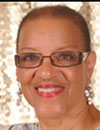
Vivian Jackson is a faculty member of the National Center for Cultural Competence at the Georgetown University Center for Child and Human Development where she provides training, technical assistance, and consultation related to cultural and linguistic competence. Recent and current projects include the Office of Intellectual and Developmental Disabilities funded Leadership Institute for Cultural Diversity and Cultural and Linguistic Competence and the Community of Practice for Cultural Diversity and Cultural and Linguistic Competence. She has served on the National Association of Social Workers’ National Committee on Racial and Ethnic Diversity where she has contributed to revisions of NASW Standards and Indicators for Cultural Competence in Social Work Practice. As a member of NASW’s Presidential Diversity Task Force, Dr. Jackson co-authored, Institutional Racism and the Social Work Profession: A Call for Action.
Person-centered thinking, planning, and practices are the goal of many human service agencies, including programs and services for brain injury. And yet, these aspirations often differ significantly from the reality of what they offer. The literature has been clear for a long time: Person-centered approaches create health and quality of life improvements for those receiving supports and services. And still, it has been difficult to transition existing service systems to the evidence-based models we know will improve lives.
In January 2020, NCAPPS convened teams committed to improving policies and processes for serving people with brain injury. From January 2020 to August 2021, these teams met with each other, NCAPPS staff, and subject matter experts as they created and implemented plans for systems change.

Anatasia Edmonston MS CRC has worked in brain injury services for over 30 years. She currently serves as the Project Coordinator for the Maryland Behavioral Health Administration’s Federal Traumatic Brain Injury Partner Grant. In this capacity she provides coordination of Project initiatives including; training on the topics of traumatic brain injury, person centered thinking and planning to professionals who work in the fields of mental health and addiction and aging services. She obtained her MS in Rehabilitation Counseling from Boston University and earned a post graduate certificate in Instructional Systems Development from the University of Maryland, Baltimore County in 2014.
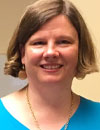
Carole Starr has been a brain injury survivor since 1999, when she was broadsided on the driver’s side by a vehicle going 50 mph. The injury ended Carole’s career as an educator and her hobby of classical music performance. She still lives with daily brain injury symptoms. One small step at a time, Carole has reinvented herself. She’s now a national keynote speaker, the author of To Root & To Rise: Accepting Brain Injury and the founder/facilitator of Brain Injury Voices, an award-winning survivor volunteer group in Maine.

Eric Washington is a former football player for the University of Kansas. His football career ended on September 30th, 2006 due to a concussion and spinal cord injury. After recovering from the neck injury, he returned to graduate with a bachelor’s degree in Applied Behavioral Sciences. Today, Eric's life mission is to advocate for people like him – people with TBI, especially those who are also homeless. He also serves as a strong advocate in the high school athletic community helping student athletes make educated decisions when taking a scholarship and helping their families understand the importance of not rushing back after injury.
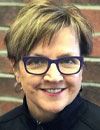
Dr. Janet Williams has been working for people with brain injuries and families since 1982. Janet completed her PhD in Family Studies and Disability at the University of Kansas and started a company called communityworks inc. For the past 28 years Janet has provided community based rehabilitation in a “nothing for me without me” person centered approach. She currently resides in Kansas with her two teen daughters and three puppies.

Kelly Lang received her undergraduate degree from The American University and worked in the insurance and human resources management industries. Kelly’s brain injury advocacy career began after she and her 3-year-old daughter were injured in a horrific car accident in 2001. Kelly has served on the Board of the Brain Injury Association of Virginia and is a member of the Brain Injury Association of America’s Brain Injury Council. She has published articles and spoken to university classes, support groups, and other professionals regarding her family’s experience with brain injury. She presented at the Interagency Task Force Conference in June 2018.

Mary Lou Bourne, as Chief Quality and Innovation Officer for NASDDDS, supports states to develop excellent quality management systems, using data to inform decisions and balance performance with value for people. Mary Lou has designed and successfully implemented a model for establishing Person Centered Service systems, including aligning person centered practices across all operations. She was a founder of The Learning Community for Person Centered Thinking. Mary Lou’s career focus on leadership’s role in assuring implementation of systemic person centered practices including the development of an organizational assessment. Mary Lou has trained PCP facilitators, Trainers and Mentor trainers and is dedicated to learning about effective person centered practices throughout human service systems.

Monica A. Lichi, MS Ed., PC, MBA, CCRP is Director for the Ohio Valley Center for Brain Injury Prevention and Rehabilitation at The Ohio State University Wexner Medical Center, a center dedicated to conducting research, providing education, and developing programs to improve the quality of life of persons who experience TBI. She is also Director for the Ohio Brain Injury Program, whose mission is to advance prevention and treatment that will improve the lives of Ohioans impacted by brain injury. She serves on the Board of Directors for the National Association of State Head Injury Administrators.